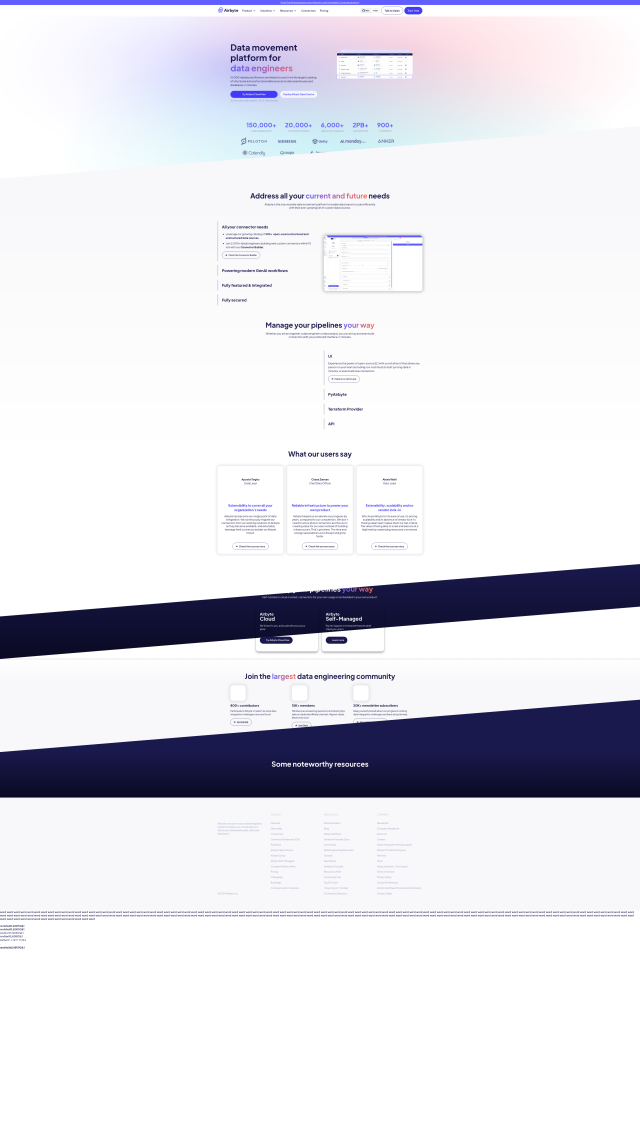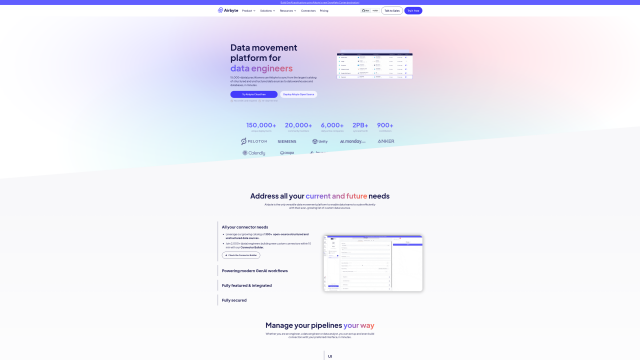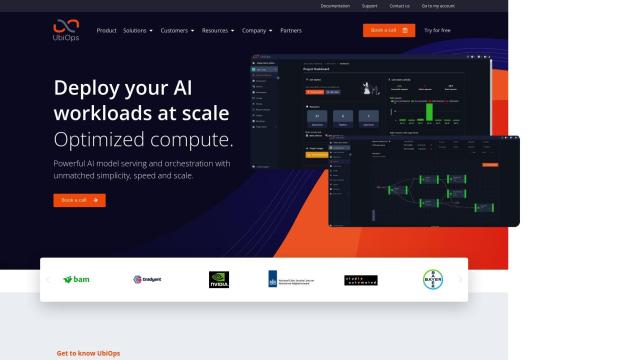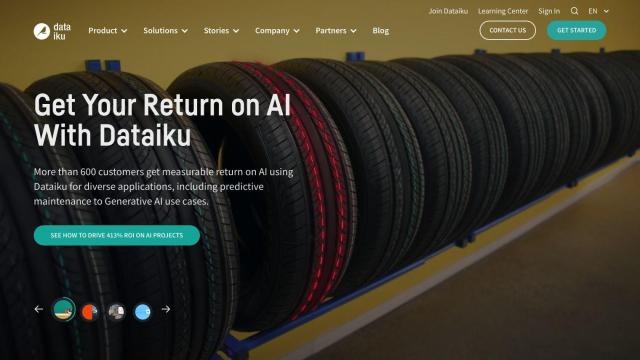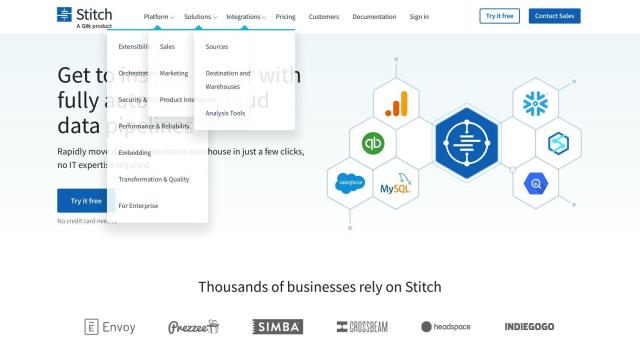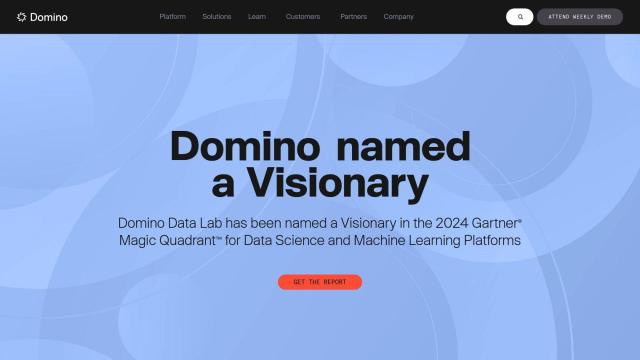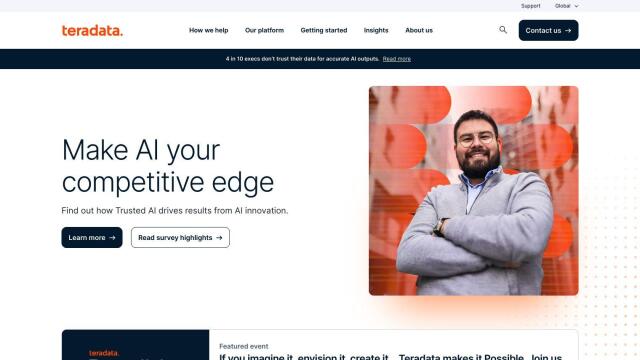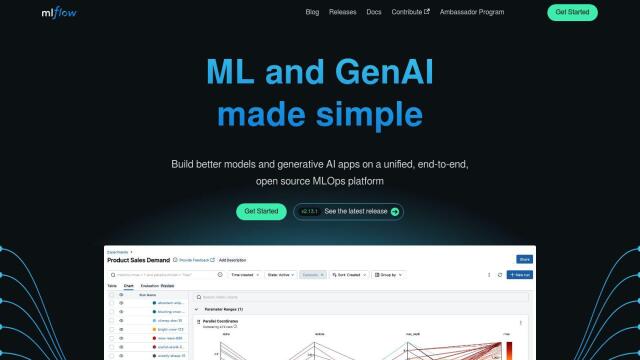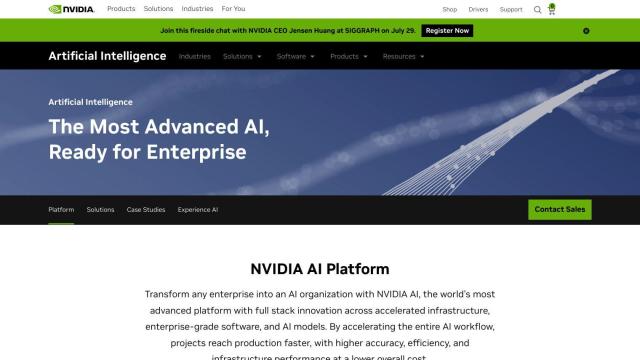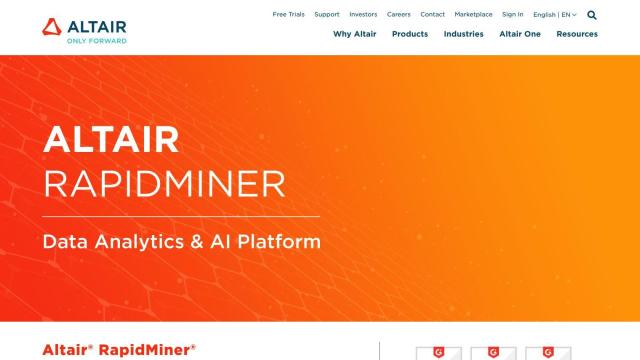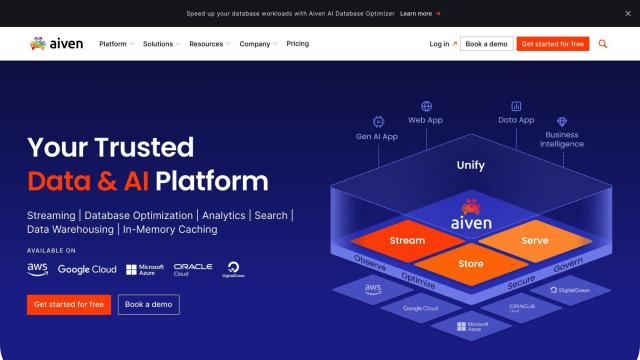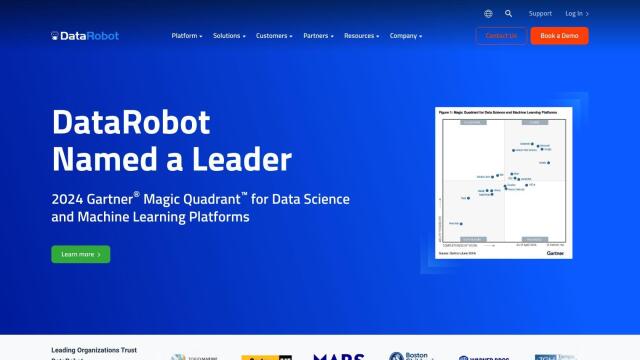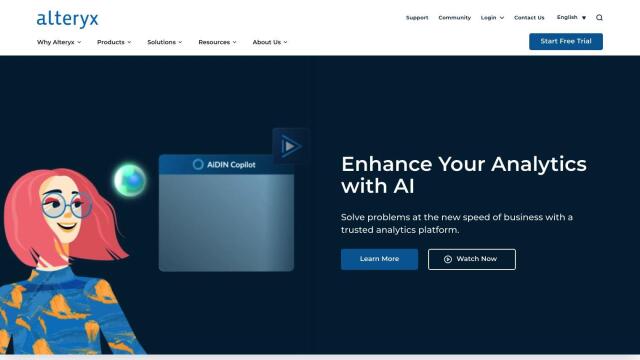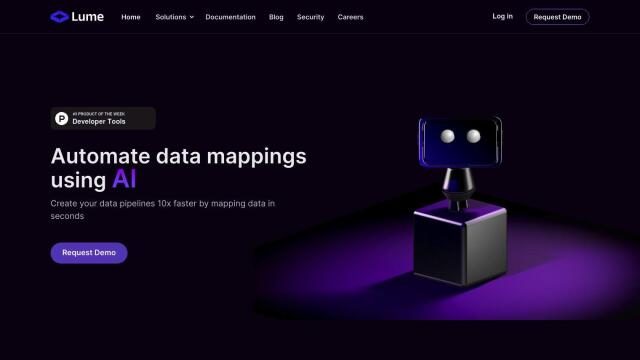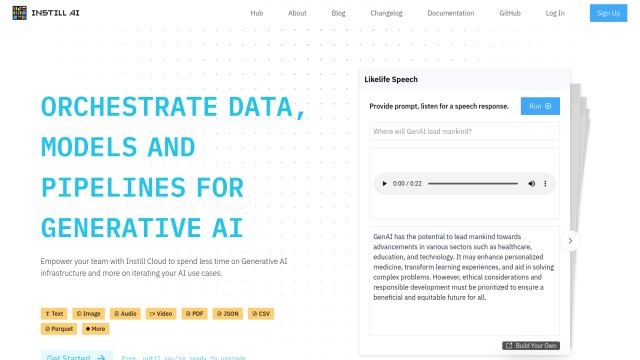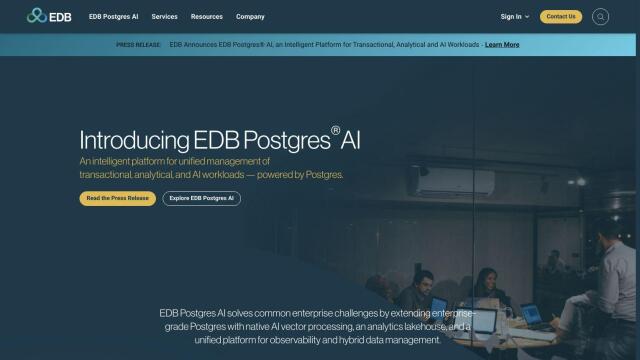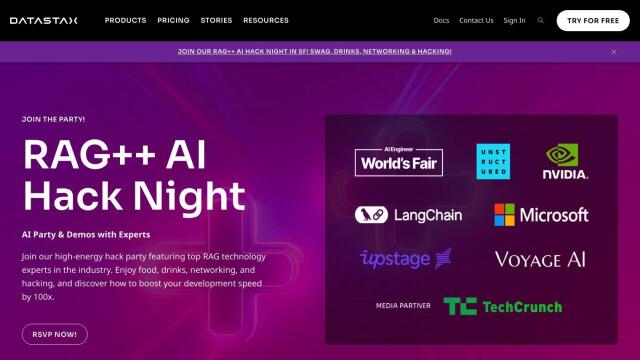Question: I'm looking for a platform that can help me build reliable data pipelines and accelerate my AI workloads.

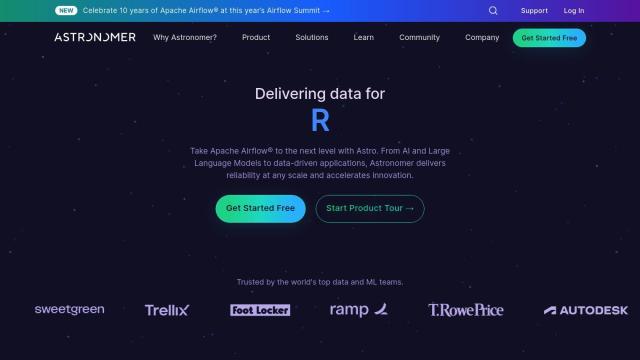
Astronomer
If you need a foundation to construct data pipelines that are reliable and to speed up your AI workloads, Astronomer is worth a serious evaluation. It's a managed service based on Apache Airflow that handles data delivery, integration and autoscaling for data products and AI services. Astronomer offers a single framework for managing data workflows and more than 1500 integrations with tools like dbt Cloud, Snowflake, Databricks, OpenAI and Tableau. It also has a focus on governance and observability, so it's a good fit for companies with AI/ML and data integration workloads.

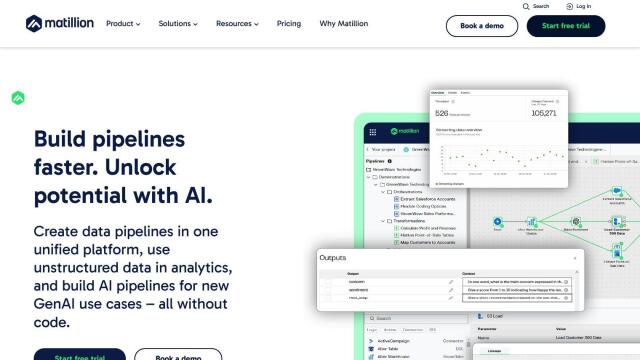
Matillion
Another good choice is Matillion. The company offers a platform for creating and managing data pipelines with no-code ELT (Extract, Load, and Transform) technology. With AI and cloud-native architecture, Matillion says it helps data engineers work more efficiently by letting them create data pipelines in one environment and connect to data sources like Amazon S3, PostgreSQL, SAP, Salesforce and Google Analytics. Its tiered pricing plans mean it can be used by data teams in a variety of industries.

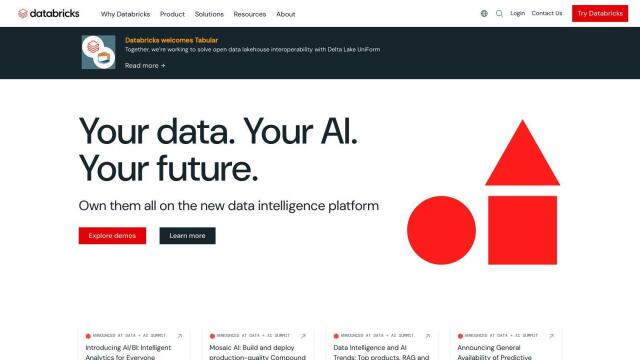
Databricks
If you want a more complete data intelligence platform, take a look at Databricks. Databricks uses generative AI to marry data, analytics and governance so customers can build, deploy and operate AI models directly on their own data. It supports a broad range of tools and integrations, including ETL, data ingestion, business intelligence and AI, and is built on a lakehouse architecture for unified and scalable data management. Databricks offers a free trial, and it's geared for a variety of user roles.

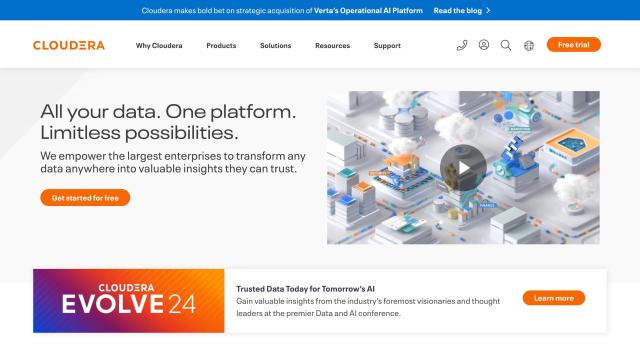
Cloudera
Last, Cloudera offers a hybrid data platform for securely ingesting, processing and analyzing data in the cloud and on-premises environments. It can unify massive data sources into a single trusted source for insights and AI model training. Cloudera's platform can offer real-time insights, automated data pipelines and large-scale data analytics, and it's suited for industries like financial services, manufacturing and healthcare.
